Situated in the North Atlantic Ocean, the Faroe Islands constitute a captivating archipelago comprising 18 islands. These islands, nestled between Iceland and Norway, operate as a self-governing nation while maintaining external sovereignty as part of the Kingdom of Denmark. Spanning square kilometers of rugged terrain and featuring volcanic islands, the Faroe Islands offer an increasingly sought-after Nordic experience, with their breathtaking landscapes and rich cultural heritage. Travelers seeking an off-the-beaten-path adventure are drawn to their unique charm and allure.
A Rich Cultural Heritage
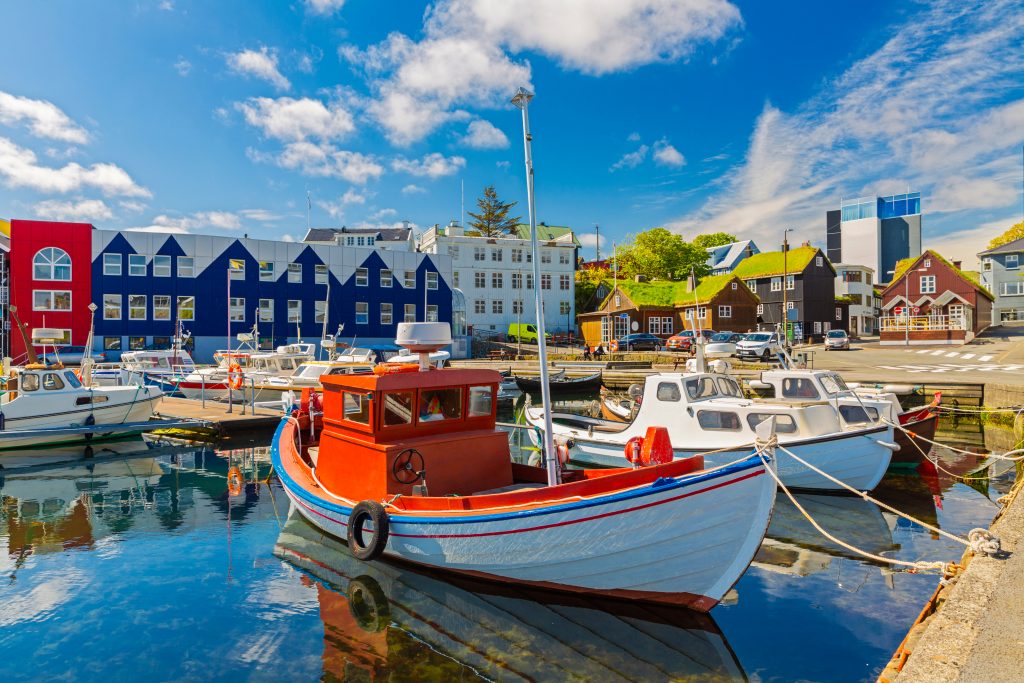
The Faroe Islands have a fascinating history that dates back to the 9th century when Norsemen settled on the islands. The name “Føroyar,” which means “Sheep Islands” in the Faroese language, reflects the islands’ deep connection to their Viking roots. For generations, the Faroe Islands were isolated and self-sustaining, with the inhabitants relying on farming and fishing for their livelihoods.
In 1948, the islands established Home Rule, granting them self-governance in various areas such as trade, education, research, and the management of living marine resources within their 200-mile fisheries zone. Today, the Faroese have their own parliament, known as the Løgting, and a well-developed public sector that provides tax-financed healthcare and education.
Natural Beauty Beyond Imagination
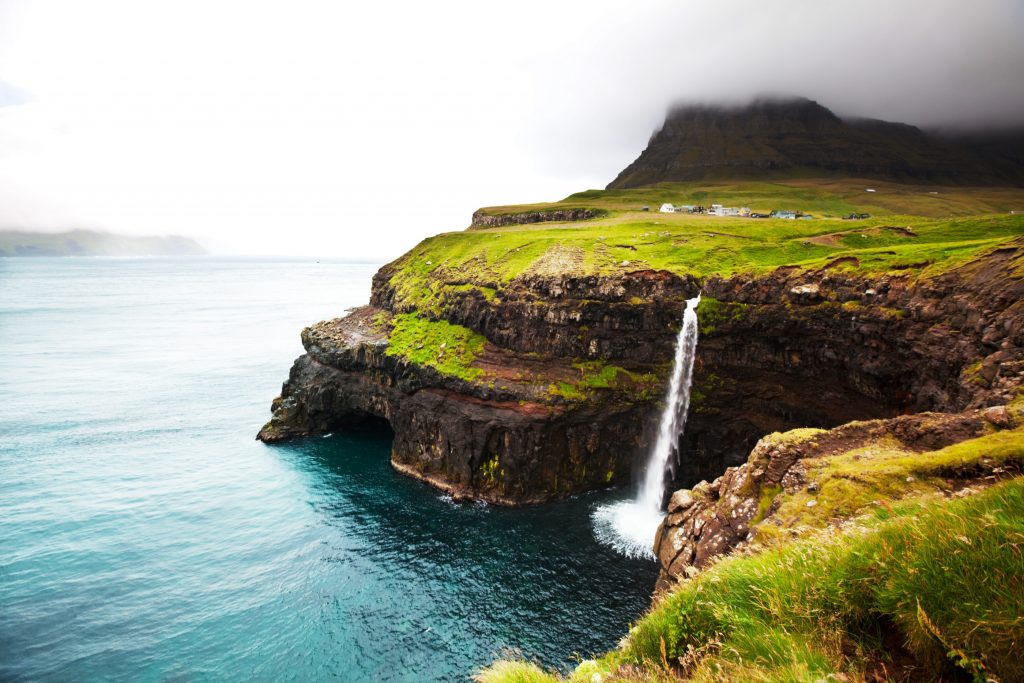
One of the greatest draws of the Faroe Islands is their unrivaled natural beauty. The archipelago is characterized by its dramatic landscapes, including steep cliffs, windswept mountains, and stunning coastlines. Volcanic in origin, the islands boast unique geological formations that have been shaped by volcanic activity and the glaciers of the ice age.
Exploring the Faroe Islands is a hiker’s paradise, with a plethora of hiking trails that offer breathtaking views of the surrounding scenery. From the iconic Mulafossur Waterfall, which cascades over rocky cliffs into the ocean, to the awe-inspiring rock formations of Drangarnir, there is no shortage of picturesque spots to discover.
A Haven for Wildlife Enthusiasts
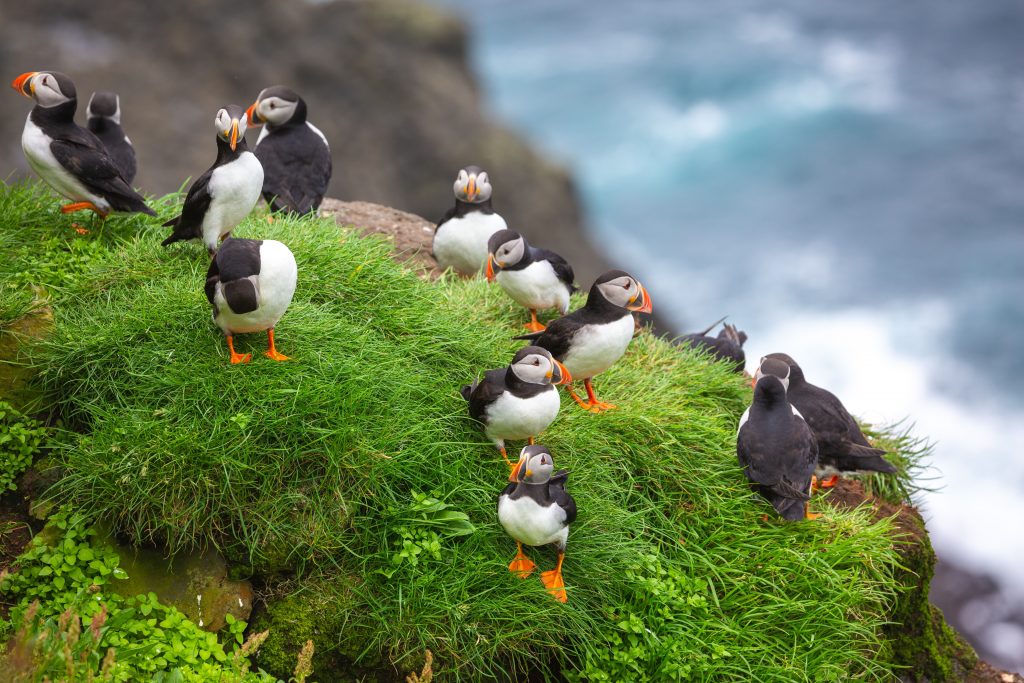
The Faroe Islands are not only a paradise for nature lovers but also a haven for wildlife enthusiasts. The islands are home to a diverse range of bird species, including puffins, guillemots, and razorbills, making it a prime destination for birdwatching. The cliffs and sea stacks provide nesting grounds for these beautiful creatures, offering a unique opportunity to observe them in their natural habitat.
For those seeking adventure, the Faroe Islands offer a range of outdoor activities. From diving into the crystal-clear waters to sailing along the rugged coastlines, there are endless opportunities to immerse yourself in the island’s natural wonders. Fishing and angling are also popular activities, allowing visitors to experience the islands’ rich maritime heritage firsthand.
The Faroese Way of Life
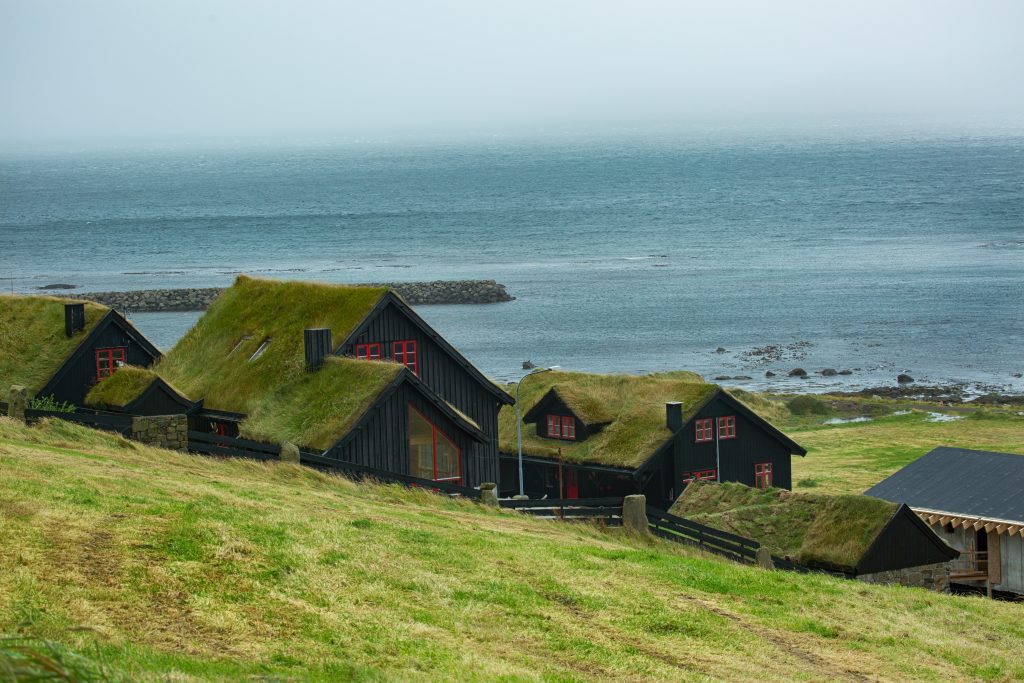
The Faroese people take great pride in their unique cultural traditions and way of life. The islands have a strong sense of community, and the locals are known for their warm hospitality. Visitors can experience the Faroese concept of “heimablídni,” which translates to “home hospitality,” by participating in a program that allows them to have dinner in locals’ homes, savoring traditional cuisine and hearing stories about the village and its history.
The Faroese language, which has its roots in Old Norse, is widely spoken on the islands. The locals take great pride in their linguistic heritage and have made efforts to preserve and promote the Faroese language through education and cultural initiatives. The islands also have a vibrant music and arts scene, with festivals and events showcasing local talent.
Getting to the Faroe Islands
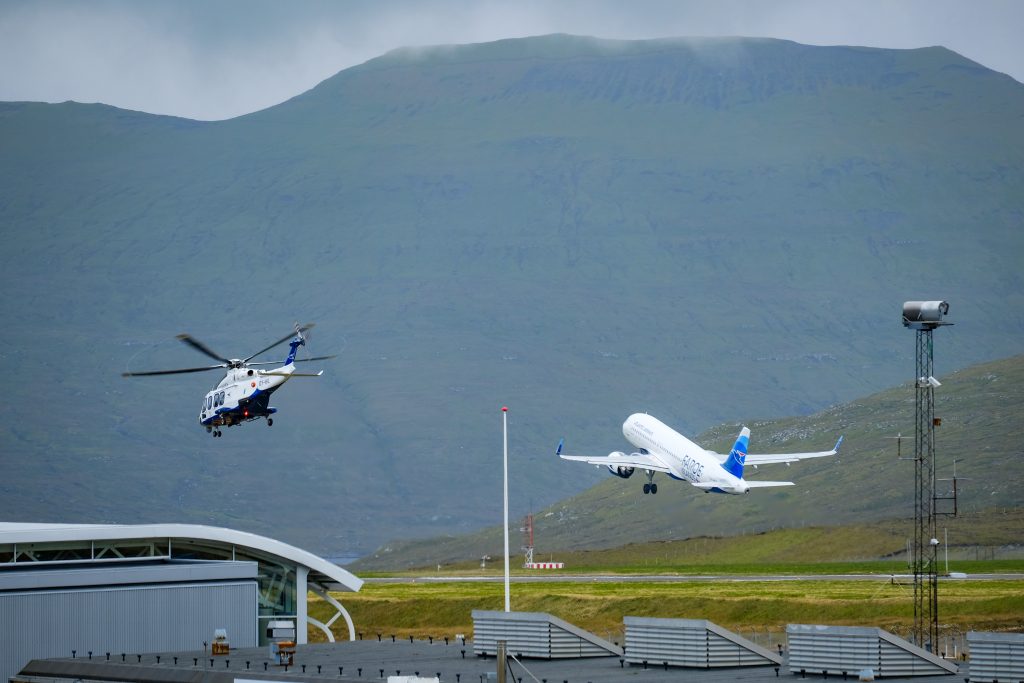
While the Faroe Islands may seem remote, they are surprisingly accessible. Vágar Airport, the only airport in the archipelago, offers direct flights from Edinburgh, Reykjavik, and Copenhagen. Travelers can also reach the islands by ferry from neighboring countries. Once on the islands, getting around is convenient thanks to a well-developed road network and sub-sea tunnels that connect the main islands.
Sustainable Tourism and Preservation
The Faroe Islands are committed to sustainable tourism and preserving their pristine environment. In 2019, the islands launched the “Closed for Maintenance, Open for Voluntourism” campaign, temporarily closing to tourists to allow 100 volunteers to help preserve the natural landscapes and promote responsible travel practices.
Visitors to the Faroe Islands are encouraged to respect the environment and follow hiking guidelines to ensure the preservation of delicate ecosystems. The islands’ commitment to sustainability extends to their fishing practices, with efforts made to ensure the responsible management of marine resources and the protection of wildlife.
The Faroe Islands and the Nordic Region
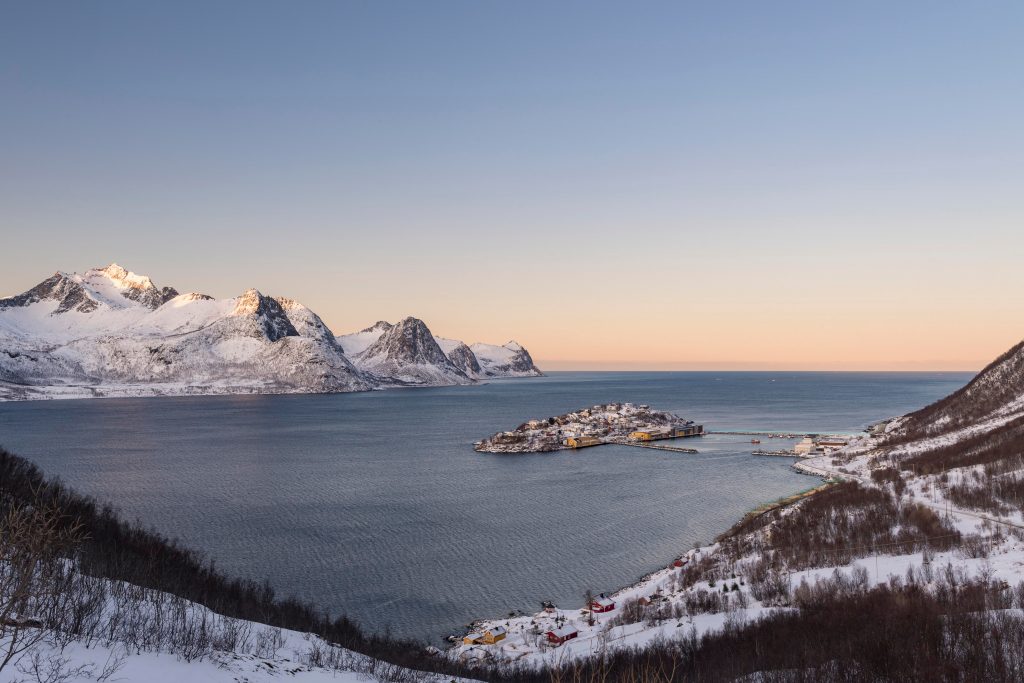
As a self-governing nation within the Kingdom of Denmark, the Faroe Islands have a unique status in the Nordic region. While not part of the European Union, the islands have the exclusive competence to legislate and govern independently in various areas, including trade, taxation, education, and social security.
The Faroe Islands have also developed their foreign policy, enabling them to negotiate their own fisheries agreements with the European Union and other countries. This autonomy allows the islands to actively participate in international fisheries management arrangements and organizations.
Embracing the Faroese Spirit
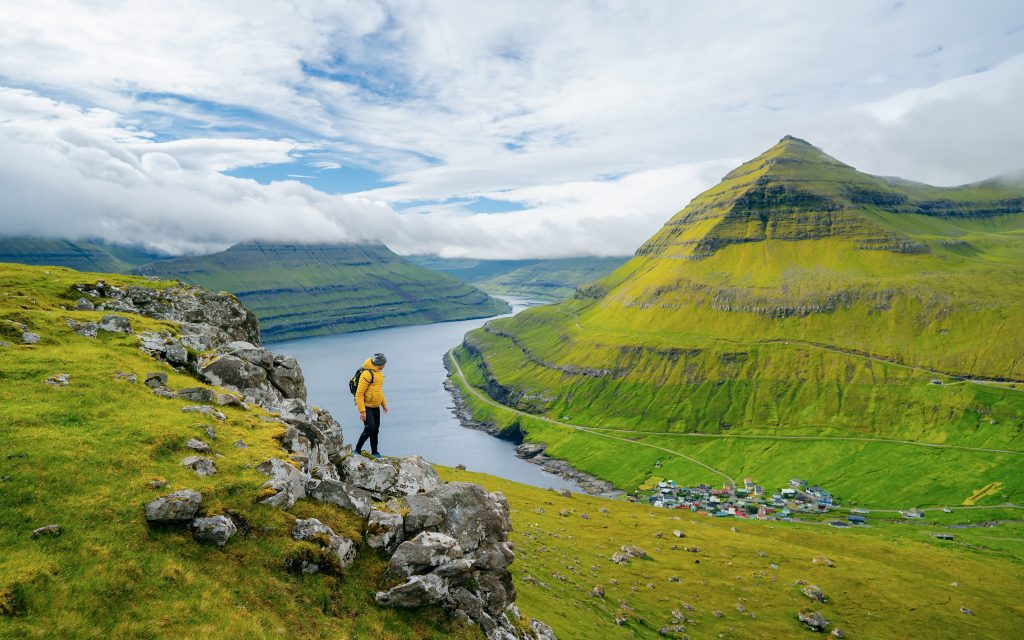
A journey to the Faroe Islands is an opportunity to immerse oneself in the essence of these enchanting isles. Whether you’re captivated by the dramatic beauty of the landscape, fascinated by the profound cultural heritage, or touched by the warmth and hospitality of the locals, the Faroe Islands guarantee an extraordinary and indelible experience. From exploring the legacy of the Home Rule Act to witnessing the vibrant Faroese political system in action, these islands provide a unique perspective on self-governance and autonomy within the wider Nordic countries. As part of Denmark, yet distinctly independent, the Faroe Islands offer a glimpse into a region where grass-roofed houses dot the landscape, cool summers invite exploration, and the Faroese government steers its own course toward full independence in a wide range of areas. Trace the historical echoes of Irish monks along the rugged coastlines, and savor traditional Faroese cuisine, including whale meat and other seafood exports that showcase the island’s highly industrial economy. Experience the heart of the Gulf Stream, where mild winters contrast with the remote village life. Visit the University of the Faroe Islands, a hub of Nordic languages and a testament to the Faroese commitment to education and self-determination. All the while, you’ll witness a society that navigates the present while honoring its history, from the red cross on the flag, symbolizing Danish heritage, to the Nordic Welfare Model that underpins the Faroese way of life. Vagar Airport serves as a gateway to the Northeast Atlantic, while Lítla Dímun looms as a reminder of the Faroe Islands’ unique geographical diversity. As you journey through this archipelago, you’ll encounter the legacy of the Treaty of Kiel and the spirit of those who’ve upheld the external sovereignty of the Kingdom of Denmark. So, prepare your bags, embrace the natural wonders of the North Atlantic Ocean, and embark on an adventure to the Faroe Islands, where a blend of adventure, serenity, and the Faroese spirit eagerly await your arrival, providing a glimpse into a fascinating tapestry of history, culture, and modernity.